- Tanzania
- Things to do in Zanzibar
- Jozani-Chwaka Bay National Park
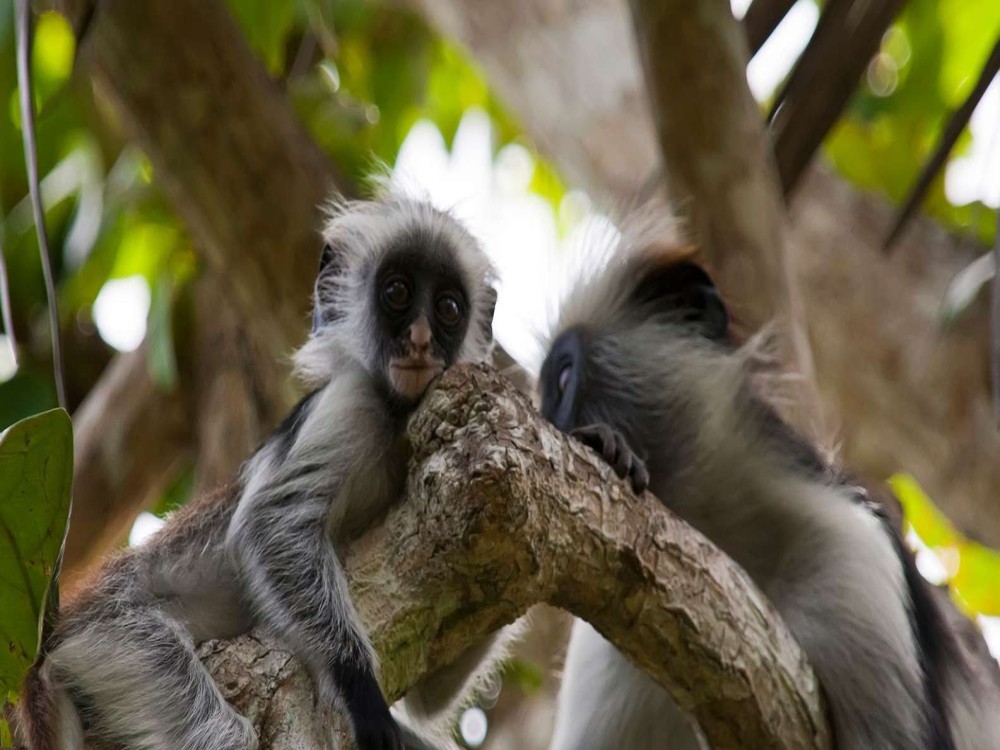
Jozani-Chwaka Bay National Park
Jozani-Chwaka Bay National Park, located in the heart of Zanzibar, is a stunning natural reserve that showcases the island’s unique flora and fauna. The park, covering about 50 square kilometers, is best known for being home to the endangered Zanzibar red colobus monkey, a species found only on this island. The lush forest, mangrove swamps, and coastal grasslands create a rich ecosystem that attracts wildlife enthusiasts, nature lovers, and birdwatchers. Visitors can explore its well-maintained walking trails and immerse themselves in its diverse environment, which includes the famous Jozani Forest. The park also offers a chance to visit the Chwaka Bay, where you can observe the vast mangrove forests that are essential for the local ecosystem. Whether you’re interested in wildlife, photography, or simply enjoying nature, Jozani-Chwaka Bay National Park provides an enriching experience on Zanzibar.
Jozani-Chwaka Bay National Park Tours & Excursions
The Basics
Visiting Jozani-Chwaka Bay National Park is an easy and rewarding experience. The park is divided into different zones, each offering a unique perspective of Zanzibar’s natural beauty. The main attraction is the Jozani Forest, where visitors can spot the rare Zanzibar red colobus monkeys in their natural habitat. In addition to the monkeys, you may encounter other wildlife such as small antelopes, wild pigs, and various bird species. Walking tours are available, where local guides will share fascinating facts about the park's biodiversity and conservation efforts. A boardwalk through the mangrove swamps is another highlight, offering views of this vital ecosystem. The park is also home to a variety of tropical plants and trees, making it a great destination for those interested in botany. The visitor center provides educational displays about the park’s conservation efforts and its diverse ecosystem.
Things to Know Before You Go
Before visiting Jozani-Chwaka Bay National Park, it's important to be prepared for a few practicalities. The park is a natural area, so expect uneven terrain and muddy spots, particularly during the rainy season. Wear comfortable walking shoes and bring insect repellent, as the tropical climate can attract mosquitoes. The best way to explore the park is with a local guide who can explain the flora, fauna, and conservation efforts. Photography is encouraged, but be mindful not to disturb the wildlife. Although the park is well-maintained, some trails may be challenging for people with mobility issues. It’s also a good idea to bring water, a hat, and sunscreen, as the weather can get hot during midday. The park entrance fee is modest, and a portion of the fee supports local conservation efforts, so your visit contributes to protecting Zanzibar's unique biodiversity.
How to Get There
Getting to Jozani-Chwaka Bay National Park from Zanzibar City is easy, with the park located about 35 kilometers southeast of the city. The park is accessible by taxi or private car, which takes around 45 minutes to an hour, depending on traffic. If you're staying in one of the many beachfront resorts on Zanzibar, it's possible to arrange a day trip to the park, either through your hotel or a local tour operator. Some tours also combine a visit to the park with stops at nearby attractions, such as the spice farms or the beaches of Chwaka Bay. Public transport options like buses and dala-dalas (shared minibuses) are available, but they may be less convenient for tourists. If you prefer a more guided experience, many tour operators on Zanzibar offer organized trips that include transportation, park entry, and a local guide.

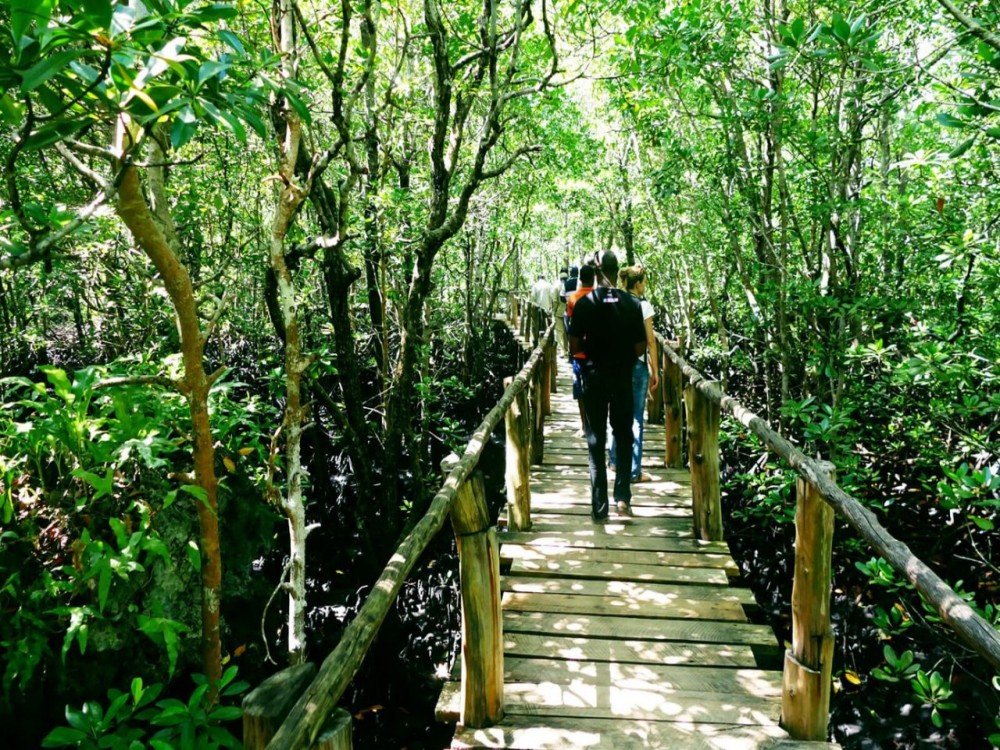
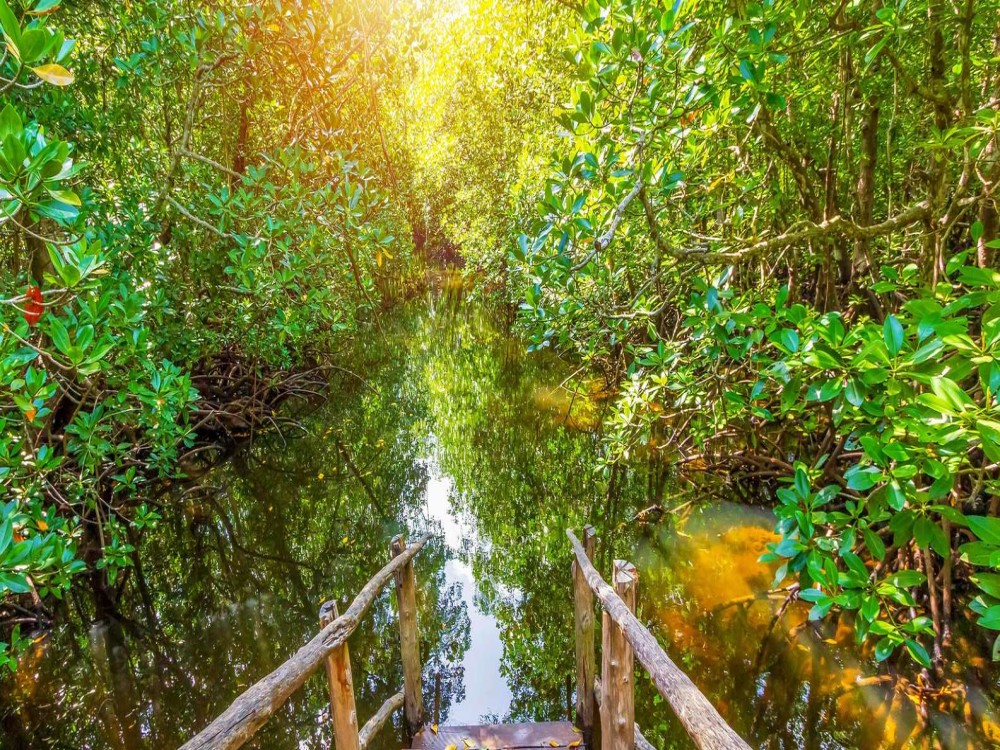
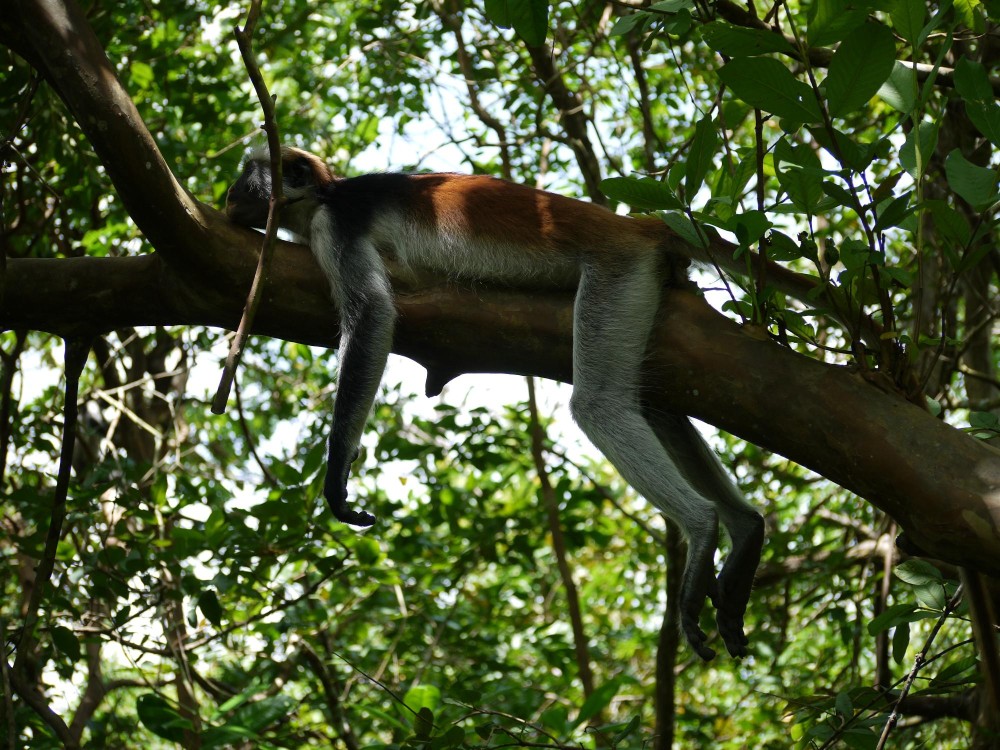
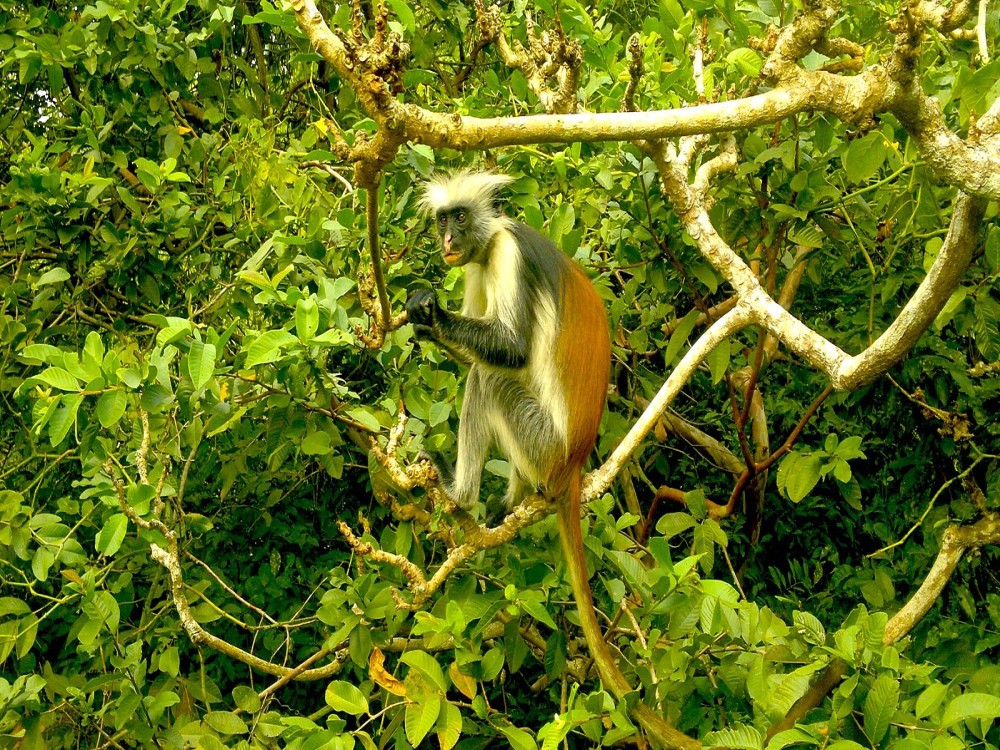
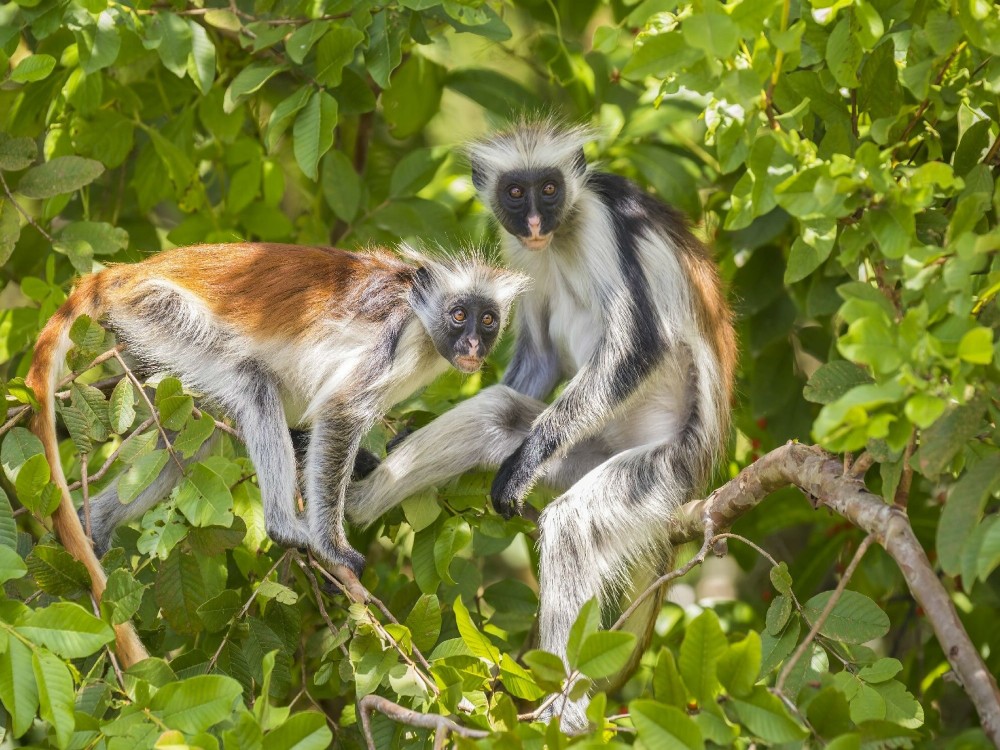
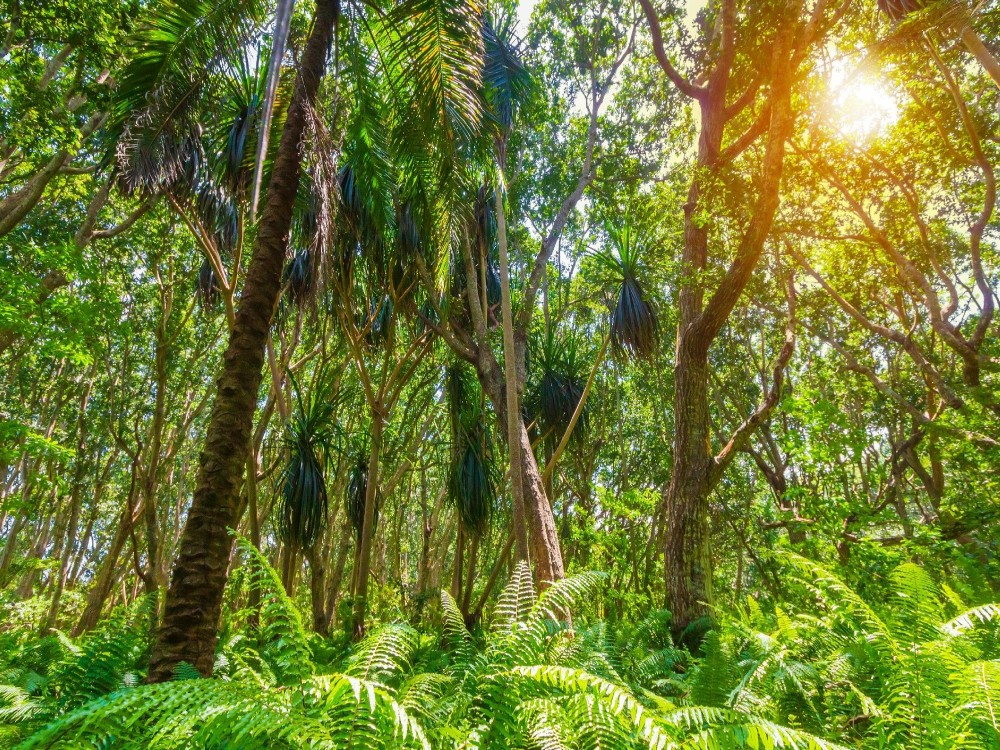
When to Get There
The best time to visit Jozani-Chwaka Bay National Park is during the dry season, from June to October and December to February. These months offer pleasant weather for walking tours, with lower humidity and less rainfall. During the rainy season (March to May), the park can be quite wet and muddy, which might make the walking trails more challenging. However, the park is still open year-round, and visiting during the rainy season means fewer tourists, so you can enjoy a more tranquil experience. Early mornings and late afternoons are the best times for wildlife sightings, particularly the Zanzibar red colobus monkeys, as they are more active during these cooler parts of the day. The park can get quite hot in the midday sun, so it’s advisable to plan your visit for early morning or late afternoon to avoid the heat.
Day Trips from Zanzibar
Jozani-Chwaka Bay National Park is a great destination for a day trip from anywhere on Zanzibar Island. Many visitors combine a visit to the park with other nearby attractions, such as the spice farms, where you can learn about Zanzibar's spice trade and sample locally grown spices. Another popular option is to visit the beaches of Chwaka Bay after exploring the park. The area is also known for its stunning coral reefs, and some tours combine a park visit with a boat trip for snorkeling or dolphin watching. If you're staying in Zanzibar City or along the island’s eastern or northern coast, a half-day trip to the park is feasible. For those based on the southern part of the island, a day-long excursion is ideal. Whether you’re a nature lover, a history enthusiast, or just looking to enjoy the beauty of Zanzibar’s wild side, a visit to Jozani-Chwaka Bay National Park is a rewarding experience.
Copyright © 2025 All Rights Reserved


